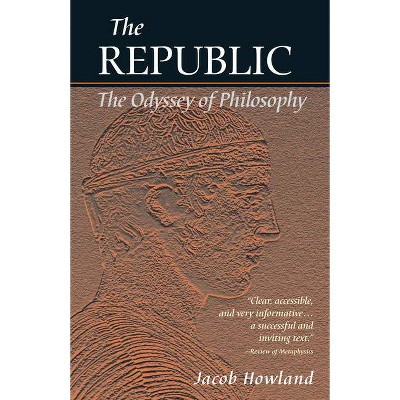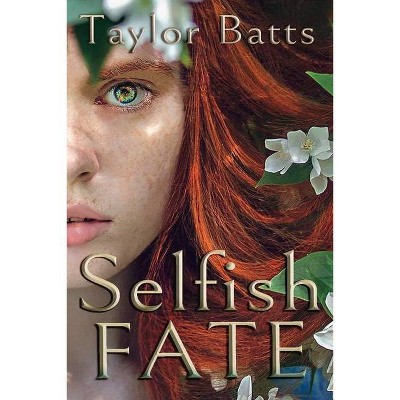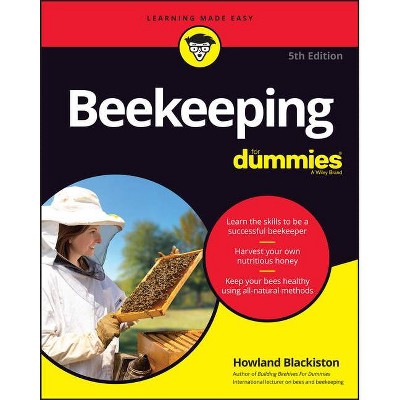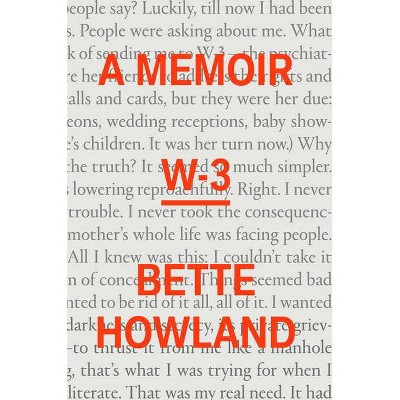Glaucon's Fate - by Jacob Howland (Paperback)

Similar Products
Products of same category from the store
AllProduct info
<p/><br></br><p><b> About the Book </b></p></br></br>Centering on the question whether conversation can shape the soul, <i>Glaucon's Fate</i> is a powerful new interpretation of Plato's <i>Republic</i>.<p/><br></br><p><b> Book Synopsis </b></p></br></br>"<i>Glaucon's Fate</i> is one of the most interesting and insightful treatments of Plato's <i>Republic</i> in years . . . We may never know the real Socrates, but Howland's mastery and interpretation of an impressive array of works from Plato's time, along with his insight into many Platonic dialogues, including and especially the <i>Republic</i>, makes this book a must-read for anyone interested in Plato, Socrates, and the life of philosophy.--<i><b>The New Criterion</i></b> <p/> <p>In the <i>Republic</i>, Socrates seeks to convince Plato's brother Glaucon that the just life of philosophy is preferable to the unjust life of tyranny. Jacob Howland's <i>Glaucon's Fate</i> argues that he fails. The available evidence suggests that Glaucon joined his cousin Critias and his uncle Charmides in the regime of the so-called Thirty Tyrants, the brutal oligarchy that governed Athens in the immediate aftermath of the Peloponnesian War. If Howland is right, Plato's intelligent and courageous brother--suspended as he was between the corruption of Athenian politics and the integrity of Socratic inquiry, between kinsmen who were leaders of the Thirty and a just friend who fell afoul of them--could not be saved even by the age's most capable advocate of virtue and philosophy. What went wrong? This is the guiding question of <i>Glaucon's Fate</i>, a book that promises to challenge our understanding of Plato's masterwork. It is the culmination of a lifelong devotion to the study of Plato's <i>Republic</i> by a major scholar. </p><p/><br></br><p><b> Review Quotes </b></p></br></br><br>"<i>Glaucon's Fate</i> is one of the most interesting and insightful treatments of Plato's <i>Republic</i> in years . . . We may never know the real Socrates, but Howland's mastery and interpretation of an impressive array of works from Plato's time, along with his insight into many Platonic dialogues, including and especially the <i>Republic</i>, makes this book a must-read for anyone interested in Plato, Socrates, and the life of philosophy.--<i><b>The New Criterion</i></b> <p/> "In this exquisitely written book, Jacob Howland not only offers a profound reading of the <i>Republic</i>, but he illuminatingly situates it in its historical context. Moreover, he treats the reader to a feast of fascinating parallels between the <i>Republic</i> and other works of Greek literature: its epics, tragedies, comedies, its legends, poems, and myths . . . <i>Glaucon's Fate</i> is the superb product of its author's fine, fertile, and subtle mind, his clarity, depth, and erudition, and his courage, compassion, and, finally, optimism. It is a book not to be missed.--<i><b>Polis: The Journal for Ancient Greek and Roman Political Thought</i></b> <p/> <i>Glaucon's Fate</i> is an erudite and closely argued book that will amply reward the attention of all readers interested in Platonic political philosophy. Among many other strong points, its discussion of Critias is excellent, and its interpretation of the myth of Er is thorough and thought-provoking.--<i><b>The Review of Politics</i></b> <p/> <i>Glaucon's Fate</i> is thoughtful and illuminating, with many telling historical and literary references and a challenging thesis. It explores significant questions about Plato's understanding of the connection between philosophy and politics and is well worth reading.--<i><b>The Claremont Review of Books</i></b> <p/> Readers will be most grateful for this remarkable contribution to Plato scholarship.--<i><b>Review of Metaphysics</i></b> <p/> In this fresh, audacious new book on the most famous Platonic dialogue, Howland has delivered a virtuoso performance . . . A knowledgeable, careful, and intense reader of Plato, Howland picks up on a wide range of subtleties and details. Informed by a lifetime of studying Greek thought, his command of both relatively obscure Greek sources, such as Xenophon's <i>Hellenica</i>, as well as the work of renowned poets such as Homer and Aeschylus, is evident throughout. <i>The Republic</i> is chock full of references to Greek myth, and hardly a single one seems to escape Howland.--<i><b>Interpretation: A Journal of Political Philosophy</i></b> <p/> "Jacob Howland masterfully reads Plato's <i>Republic</i> as a work of literature and history. By putting the education of Glaucon--Plato's brother--at the center of the text, he confirms Rousseau's famous judgment that the <i>Republic</i> is the greatest work on education ever written. Socrates' failure to turn Glaucon toward the philosophic life illustrates the vulnerabilities of philosophy when confronted with the allures of power and political rule. <i>Glaucon's Fate</i> is a must-read for every serious student of Plato's philosophy."--<b>Steven B. Smith, Alfred Cowles Professor of Political Science, Yale University</b> <p/> "<i>Glaucon's Fate</i> is splendid. It shows the <i>Republic</i> as no mere epic but a proper Greek tragedy, with the violence, as is traditional, taking place offstage. I found Howland's book enlightening on every page."--<b>Lenn E. Goodman, Professor of Philosophy and Andrew W. Mellon Professor in the Humanities, Vanderbilt University</b> <p/> "In <i>Glaucon's Fate</i>, Jacob Howland reveals exquisitely how Plato's thought was formed by his lived experience. Through close attention to the historical personalities in the circle of Socrates, Howland shows how memory of Glaucon--Plato's brother, who also figures in Xenophon's <i>Memorabilia of Socrates</i>--provided a foil for Plato to construct his ideal philosopher-ruler. Our reading of the <i>Republic</i> is richly informed by this book."--<b>Mark Munn, Professor of Ancient Greek History and Greek Archaeology, The Pennsylvania State University</b> <p/> "Howland's fascinating new book about Plato's <i>Republic</i> is beautifully written, original, and profound. Providing evidence from the <i>Timaeus</i>, the <i>Critias</i>, and the <i>Charmides</i> as well as from other historical sources, Howland demonstrates Socrates' rivalry with the tyrannical Critias for the soul of Glaucon, the likely failure of Socrates' pedagogy, and Plato's grave reservations about the philosophic rigor and scientific control in the city in speech. Illuminating the <i>Republic</i>'s drama and philosophy by situating the dialogue in Athens's political history, Howland's work is a masterful introduction for those reading Plato for the first time and a challenge for seasoned classical scholars."--<b>Mary Nichols, Professor Emerita of Political Science, Baylor University</b> <p/> "Howland's book reorients nearly every detail of this dialogue that we think we know so well. <i>Glaucon's Fate</i> is an exhilarating read. It will change the landscape of the scholarly debate about Plato's <i>Republic</i> for many years to come."--<b>Anne-Marie Schultz, Professor of Philosophy, Baylor University</b><br><p/><br></br><p><b> About the Author </b></p></br></br>Jacob Howland is McFarlin Professor of Philosophy at the University of Tulsa, where he teaches in the Honors Program as well as in philosophy. He has written and lectured on the work of Plato, Aristotle, Xenophon, and Hegel, among others. He is the author of <i>The Republic: The Odyssey of Philosophy</i>, <i>The Paradox of Political Philosophy: Socrates' Philosophic Trial</i>, <i>Kierkegaard and Socrates</i>, and <i>Plato and the Talmud</i>.
Price History
Price Archive shows prices from various stores, lets you see history and find the cheapest. There is no actual sale on the website. For all support, inquiry and suggestion messages communication@pricearchive.us




















